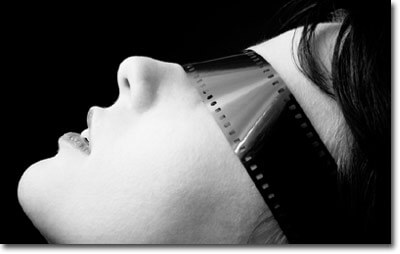The involuntary nature of flashbacks can be frustrating to both partners. When they occur like a bolt out of the blue during a period of progress and goodwill, it is natural to feel discouraged, as if the uncontrollable emotions will never end.
If, however, you notice that you aren’t having them as often or that you recover more quickly, you can consider this a sign of progress instead of backsliding.
You will know that healing is nearly complete when flashbacks are twinges rather than painful re-experiences.
There are approaches for coping with flashbacks alone or with your partner. These will help the unfaithful partner learn how to be a healer and the betrayed partner become active in self-healing.

Face flashbacks together
During therapy, couples receive flashback training based on the compassionate communication skills.
The essential lesson is for the betrayed partner to learn how to share flashbacks without blaming and for the unfaithful spouse to empathize and listen.
Let’s witness the same scene in two takes (just as in the movies).
In “Take 1” you’ll see what it sounds like when people are just beginning to grapple with flashbacks. “Take 2” shows what it sounds like after successful coaching.
Take 1
Betrayed Partner: I can’t even watch TV anymore because of what you did!
Involved Partner: I told you not to watch TV. You twist everything into this. Why can’t you just put it behind you and get over it? You always ruin everything.
Take 2
Betrayed Partner: I cried all morning because a TV program brought back all kinds of memories. I could sure use a hug.
Involved Partner: I’m really sorry that you’re feeling so much pain. I know it’s going to take time for you to get over this. Let me hold you until you feel better.
As you can see, flashbacks can provide an opportunity to share the pain and emotionally join in a healing process. The unfaithful partner can take on the role of healer by empathizing verbally and offering physical comfort.
Predict flashbacks
Couples can learn to predict situations that could evoke flashbacks and talk about how they can handle them together.
One strategy is to “write over” the memories with reparative experiences.
One woman told me that she had experienced a flashback the year before, when she sat down to watch the Miss America pageant on television. In retrospect, she realized that she had been watching the pageant alone on the night she got a call from her husband’s affair partner. This year, she wanted to detoxify her poisonous associations and keep from catapulting back into that crisis. She could have chosen to avoid the program, but instead, she asked her husband to sit next to her and watch it with her. When she told him why, he understood and held her hand during the program. Next year, she thinks, there will be no problem.
Avoid flashbacks
Because flashbacks are involuntary reactions that are stimulated by reminders of the trauma, you can learn to avoid situations that are likely to trigger them.
Yvette’s husband added miles to his daily commute to avoid the city park where she used to go for walks with her affair partner. Even the name of the urban square was upsetting to him, and he saw no reason to revisit his pain every day to and from work.
Ride the wave
Sometimes flashbacks are unavoidable. Once a flashback begins, you should not try to block it. Trying to stop the process could intensify it. Say to yourself, “This is just a flashback. It will pass.”
Over time, as your recovery progresses, flashbacks do begin to wane. They occur less often as safety is restored. But an unexpected cue, such as seeing the affair partner in public, can still trigger a flashback many years after the traumatic event.

Do you have any tips to start healing from flashbacks without closure or support from the cheating ex-partner? I feel like i’m struggling through this on my own and I can’t just “logic” myself out of the thoughts because they actually happened, multiple times.
This article was extremely helpful- thank you! I have a tendency to berate myself when I have flashbacks 6 years post (actually there was a year’s worth of D days from 2010-2011 and a few minor ones until 2015). My H has changed considerably, but still is in communication pattern one when I have a flashback. And frankly, it angers me so much I revert to that pattern too. We’ve had tons of therapy so we know what to do, just don’t do what we know. But still have questions-
eg I’m wondering if it’s more helpful to just keep trying to avoid triggers or to do some kind of exposure therapy (like the write-over) to decrease the affect response. Also, due to the severity and length of my Hs infidelities (40 years, 2 one year affairs, 1 ten year affair, numerous one nighters, porn, chat rooms, etc) is it even possible to heal? Doing better but hate the rollercoaster!
Hi – is this thread still active?
Pingback: The 3 Steps in Planning a Post-Affair Date Nite - The Infidelity Recovery Institute